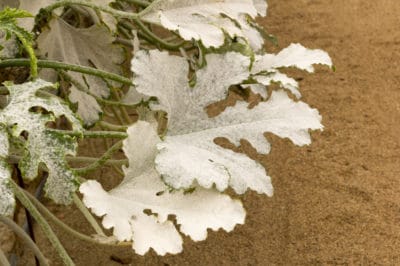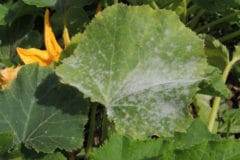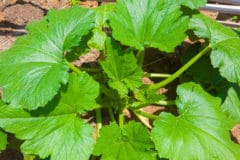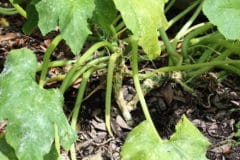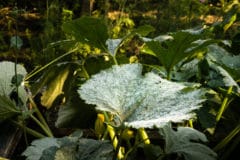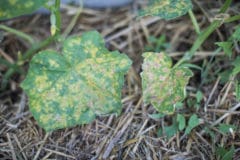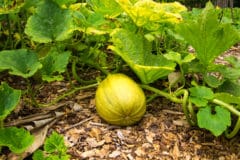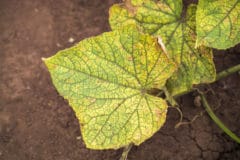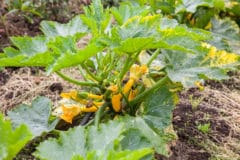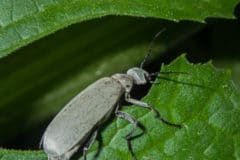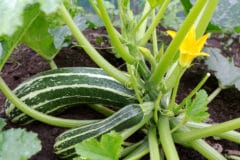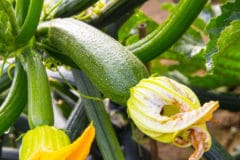Powdery Mildew
This fungal disease is very common in many types of cucurbits—plants in the squash family—and can also affect other plants in your garden. It attacks during warm weather later in summer.
Symptoms:
- Powdery white coating—like soap scum—on leaves
- Leaves warping and turning crisp
- Wilting
- Young leaves and stems dying back
To treat powdery mildew, first remove severely affected leaves. Disinfect the knife or shears you use to avoid spreading the fungus. Wet leaves will allow the fungus to thrive, so water your plants at soil level. When planting, leave plenty of space between plants to improve ventilation.
Powdery mildew can kill your plants if allowed to go unchecked, so if preventative measures aren’t enough to get it under control, use neem oil or a copper- or sulfur-based fungicide to treat your zucchini.
Bacterial Wilt
Transmitted by cucumber beetles, bacterial wilt can easily be mistaken for other factors that cause leaves to wilt and die, but it differs in that it affects the entire plant instead of individual leaves.
Symptoms:
- Sudden wilting across the plant
- Insect damage such as holes in the leaves
- The presence of orange or yellowish beetles with black markings
Unfortunately, there’s no treatment for bacterial wilt itself, but because it’s only carried by cucumber beetles, you can still defend your plants. Neem oil and diatomaceous earth are organic-friendly insect repellants that can help get rid of the beetles once they appear. You can also prevent them from attacking your plants by using row covers.
Squash Mosaic Virus
One common cause of spots on your zucchini’s leaves is squash mosaic virus. This virus can be spread by seed companies that don’t properly screen their seeds, and also by the zucchini grower’s least favorite bug: cucumber beetles.
Symptoms:
- Pale or yellowed spots on the leaves
- Raised blisters
- Leaves warped upward
- Browning and crisping of leaves
Since this disease is viral, there’s no way to cure an infected plant, but as with bacterial wilt, you can prevent it. Purchase seeds certified free of squash mosaic virus, and take precautions against cucumber beetles. If you do have infected plants, carefully remove and destroy them to keep the virus from infecting your garden’s soil.
